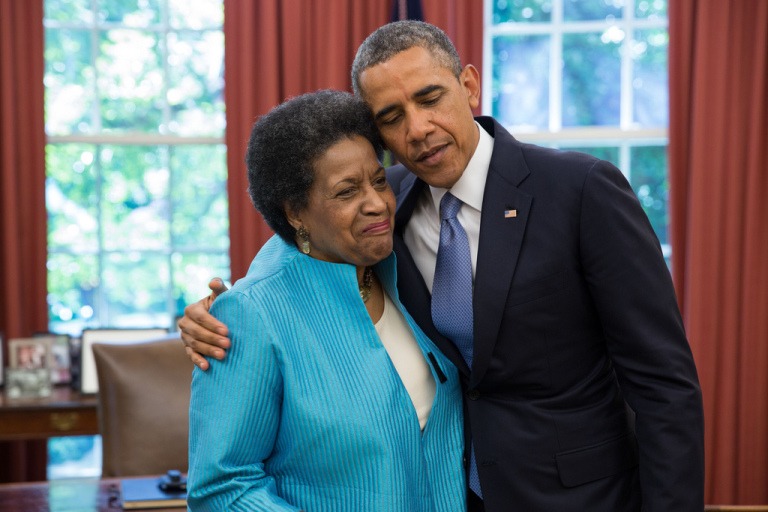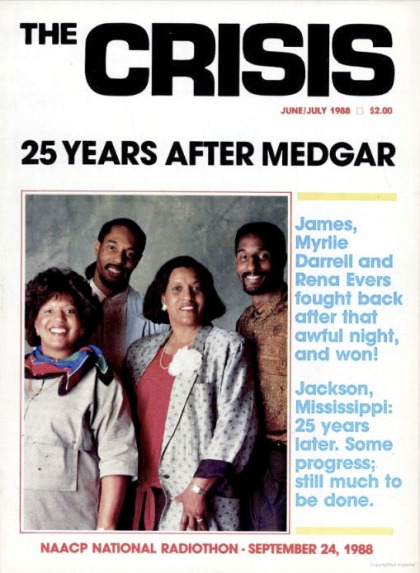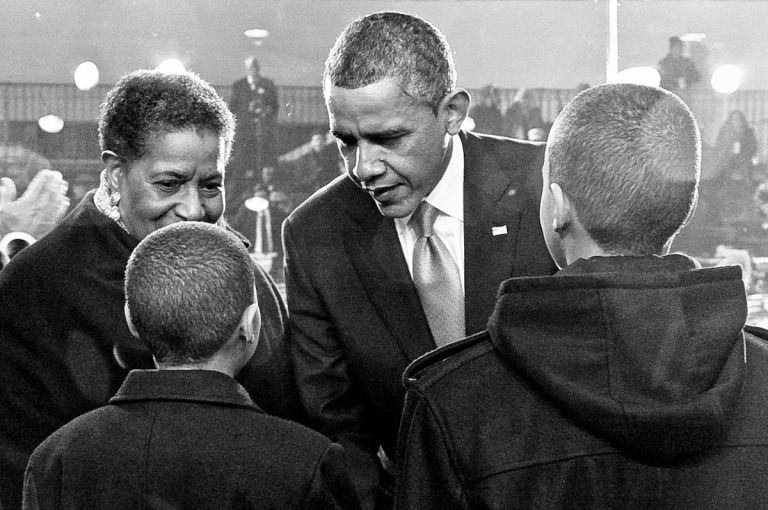Today [June 4, 2013], President Obama visited with Myrlie Evers-Williams, a civil rights heroine and widow of Medgar Evers, and other members of the Evers family, to commemorate Medgar Evers’ life and contribution to the Civil Rights Movement. President Obama said during the visit that Medgar Evers was a warrior for justice, and the tragedy of his death turned into a rallying cry for a movement. (Read more)

The Crisis Magazine. 25 Years After Medgar

The complete digitized issue of the magazine can be found here.
A Tribute to Medgar Evers
On Tuesday February 7 at Thalia Mara Hall in Jackson, Mississippi, the Mississippi Symphony Orchestra along with the Mississippi Mass Choir, the Mississippi Girlchoir and CBS News Correspondent Randall Pinkston presented A Concert in Tribute to Medgar Evers. Mississippi Public Broadcasting recorded the concert and produced an hour long radio special from it. This webpage was created as a companion to the radio program, providing additional information about Evers’ life and work. (See more)
50th Anniversary of Medgar Evers’ Broadcasting Milestone
In the early 1960s, as Medgar Evers was becoming better known nationally as a civil rights leader in Mississippi, he found himself shut out of local television newscasts in his hometown and the state capital, Jackson.
Although Evers served as the field secretary for the National Association for the Advancement of Colored People, local TV and radio stations never called, his wife, Myrlie, recalled in an interview. (Read more)
Turn Me Loose: The Unghosting of Medgar Evers

“Turn me loose” was actually the last phrase or set of words that Medgar uttered. He sat up on the hospital bed and said, “Turn me loose,” and then collapsed, and that was it for him. I already made a decision that I would not have him speak through a poem in this collection, but I wanted him to still be present, and that was, for me, a nice frame to put his voice into and to let it drive the story and the narrative. (Frank X. Walker)
The book is available from the library.
An audio rendition with poetry by Frank X. Walker, music of 1963 and historical accounts (audio)
Listen to the interview with Frank X. Walker (audio)
Medgar Evers’ Son Honors Civil Rights Icon In His Own Way
James Van Dyke Evers was only 3 when his father, Medgar, was assassinated in the driveway of the family’s home in Jackson, Miss., in June 1963. (Read more)

Home of Civil Rights Hero Medgar Evers Is Now a National Monument
Today [March 15, 2019], Home of Civil Rights Hero Medgar Evers is now a national monument. Before his assassination in 1963, Evers led civil rights demonstrations and investigated racial violence in Mississippi. (Read more)
